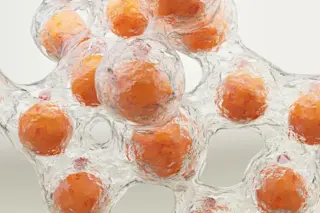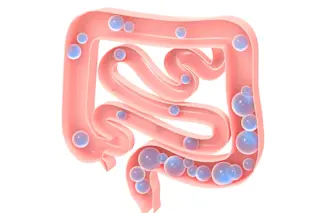
Researchers have found specialized receptors on the tongues of mice that detect calcium, leading them to hypothesize that humans have the calcium-dedicated receptors, too.
It may be time to add calcium to the types of tastes -- sweet, sour, salty, bitter and savory -- that can be detected by humans [HealthDay News].
But in another twist, most mice don't like the taste, lead researcher Michael Tordoff says.
Tordoff and his colleagues gave 40 different strains of mice a choice: They could drink water or a calcium-rich liquid. Most preferred water once they tried both. There was, however, one exception—a mouse strain called PWK actually preferred the calcium-enriched liquid. Those mice, it turned out, had a different version of genes that are responsible for taste receptors on the tongue [Scientific American].
The new findings, presented at at an ongoing meeting of the American Chemical Society, may explain why many people have strong reactions to calcium-rich foods like spinach and brussel sprouts (in milk the mineral binds to fats and proteins, dampening its flavor).
"Calcium tastes calcium-y," Tordoff said. "There isn't a better word for it. It is bitter, perhaps even a little sour.... In tap water, it's fairly pleasant," Tordoff said. "But at levels much above that, the taste becomes increasingly bad" [LiveScience].
Tordoff says the discovery of the genes that are responsible for calcium receptors could lead to the creation of engineered foods. The
discovery could allow scientists to tweak the taste of foods to make them more palatable. Alternatively, drugs that block the bone-strengthening mineral's taste could be created, making it easier for us to eat [these foods]. Dr Tordoff said: "People don't consume as much calcium as nutritionists would like and one reason for this is that foods high in calcium don't taste good to many people" [Telegraph].
For adventures in flavor-hacking, check out the DISCOVER article, "The Biology of Bitterness."
Image: flickr/Michael (mx5tx)













